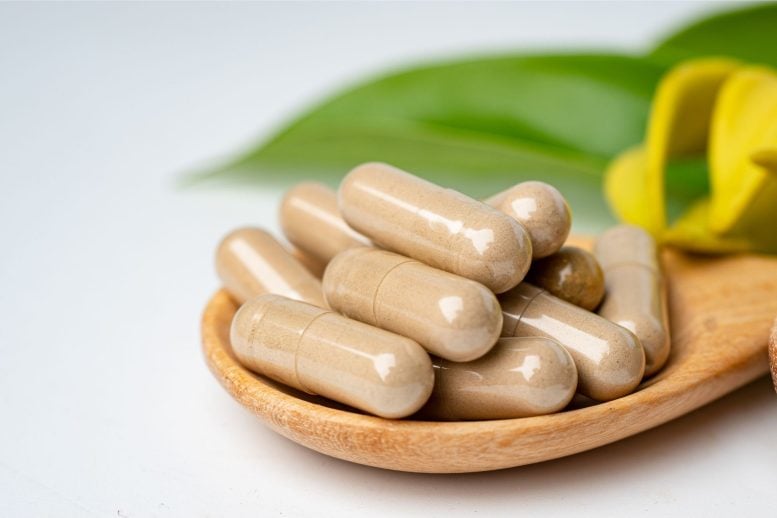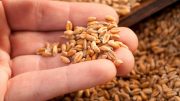
A University of Michigan study revealed that a substantial number of Americans use potentially hepatotoxic botanical supplements like turmeric and green tea without medical advice. The research highlights critical issues such as mislabeling, lack of regulation, and insufficient medical oversight, emphasizing the need for heightened awareness and safety measures in the rapidly growing supplement market.
A study reveals widespread use of herbal supplements previously identified as potentially harmful to the liver.
According to a study by researchers at the University of Michigan, millions of Americans take supplements with potentially hepatoxic botanical ingredients.
Over a 30-day period, 4.7% of the adults surveyed in the National Health and Nutrition Examination Survey conducted from 2017 to 2020 took herbal and dietary supplements containing at least one of the botanicals of interest: turmeric; green tea; ashwagandha; black cohosh; garcinia cambogia; and red yeast rice containing products.
The resulting paper was recently published in JAMA Network Open.
“Our interest started when we saw cases of liver toxicity from herbal and dietary supplement use in people enrolled into the ongoing NIH-funded DILIN study,” said Alisa Likhitsup, M.D., M.P.H., clinical assistant professor of Medicine at U-M and lead author on the paper. “But it was difficult to say how many people were using these supplements and why. The major finding here is the large number of Americans taking these products with an estimated 15 million adult Americans taking them on a regular basis.”
Challenges in Supplement Regulation
Prior research in the field had established the specific botanicals studied as potentially hepatoxic. Supplements are of particular concern for the researchers for several interrelated reasons: lack of government regulation, insufficient attention in medical screenings, and frequent mislabeling.
“In a previous study, we found that there was a great deal of mislabeling of some of these products,” said Robert Fontana M.D., Michigan Medicine hepatologist, professor of medicine and the study’s senior author. “We performed analytical chemistry and found about a 50% mismatch between the stated ingredients on the label and what they actually contained, which is quite alarming. If you buy a supplement and it says it has a certain ingredient, it’s basically a coin flip if that’s true or not.”
Mislabeling is enabled by a lack of regulation. And since their effects are not well understood, clinicians often will not ask patients what supplements they are taking.
“We weren’t aware that so many people were taking these supplements,” said Likhitsup, a transplant hepatologist. “So, when doctors see patients in the office, they don’t necessarily ask about supplement use or take into consideration their effects.”
In the studied population, the highest proportion of people consumed turmeric (3.46%), followed by green tea (1.01%), ashwagandha and black cohosh (0.38%), garcinia cambogia (0.27%), and red yeast rice products (0.19%). Most users reported consuming the botanicals on their own and not on the advice of a doctor. The most common reason given for taking the botanicals was to improve or maintain health.
Motivations for Supplement Consumption
Of the turmeric users, 26.8% consumed the products specifically for supposed benefits for joint health or arthritis, while 27.2% of the green tea users were hoping to improve their energy levels. The majority of the garcinia cambogia users hoped it would help them lose weight.
One impetus for this research is the growth of the herbal and dietary supplements industry. The paper notes that there are more than 80,000 unique supplement products available for purchase worldwide and that supplement sales surpassed $150 billion in the United States in 2023, a figure that rivals the combined sales of prescription drugs.
Another study had found a 70% increase in liver transplants due to injury caused by supplements from 2010-2020, compared to 1994-2009.
The JAMA study was not able to establish any kind of causal relationship between consumption of the six botanicals and liver injury since it was intended to assess supplement exposure in the general U.S. population. Given the lack of regulation, however, the researchers still hope to make clinicians and patients aware of just how much is still unknown about these supplements.
“We’re not trying to create alarm,” Fontana said. “We’re just trying to increase awareness that the over-the-counter supplements people are taking and buying have not been tested nor necessarily proven to be safe.”
Reference: “Estimated Exposure to 6 Potentially Hepatotoxic Botanicals in US Adults” by Alisa Likhitsup, Vincent L. Chen and Robert J. Fontana, 5 August 2024, JAMA Network Open.
DOI: 10.1001/jamanetworkopen.2024.25822









RE “Supplements are of particular concern for the researchers for several interrelated reasons: lack of government regulation, insufficient attention in medical screenings, and frequent mislabeling”
This is mostly the same old deceptive BIASED hype against supplements (disguised as objective straightforward facts) that has been spread among the unwitting public at regular intervals by the corrupt mainstream medical establishment. Predictably, this piece of propaganda comes from a major PR mouthpiece of the allopathic medical mafia, the highly biased JAMA.
Propaganda works best if repeated frequently, it’s a prime feature of the sleazy advertising business and politics. And official medicine is nearly all about self-serving politics.
While it is true that there are issues with supplement product quality and product adulteration, especially among certain types of supplements such as diet products, they MUST be seen in the wider context to understand the issues’ real significance in terms of absolute risks to you.
So if you look past this propaganda presented here you will recognize that HIGHLY Fda-regulated (for safety and effectiveness) products such as prescription drugs of the conventional medical business cause MULTIPE TIMES more damage to public health than LIGHTLY Fda regulated (for safety and effectiveness) supplements (the difference is like night and day!!!) — read the scholarly article “Tougher Supplement Regulation: A Necessity Or Politics?” … https://www.rolf-hefti.com/supplement-regulation.html
The general public must understand that “Fda approval” of anything isn’t a sign of scientific validity of product safety or effectiveness but mostly of corporate favoritism (see above reference).
The lack-of-meaningful-regulation argument has been extensively used by the medical profession/medical establishment to mislead the public into thinking that dietary supplements pose a great threat to their health. So, the deceptive calls for more federal regulation of supplements and anti-supplement rants, such as this one, are usually little more than total public deception.
I read between the lines. And I hear what you’re not saying. You’re not holding the medical establishment accountable for it’s lack of interest in prevention services. Only treatment of sickness. There is a reason people seek help outside of the trad medical establishment. Our bodies aren’t drug deficient they’re nutrient efficient. And telling people to eat more greens isn’t working. Massed produced GMO veggies don’t deliver what we need. Physicians heal yourselves. Fix the broken medical system & people won’t flee. Stop with the scare tactics. Until you reign in pharmaceutical companies, you have no credibility. Pharma has killed many & created generations of drug addicts. Many accessed the drugs from their parent’s medicine cabinets. Where are the warnings about that.
This entire article is disingenuous and highly misleading. The article has the alarmist title “Millions at Risk: Popular Herbal Supplements Linked to Potential Liver Damage” yet later in the article it says “The JAMA study was not able to establish any kind of causal relationship between consumption of the six botanicals and liver injury since it was intended to assess supplement exposure in the general U.S. population.” I absolutely loath this type of “reporting” in which the conclusions are entirely divorced from the underlying data because the author or sponsor has an agenda.